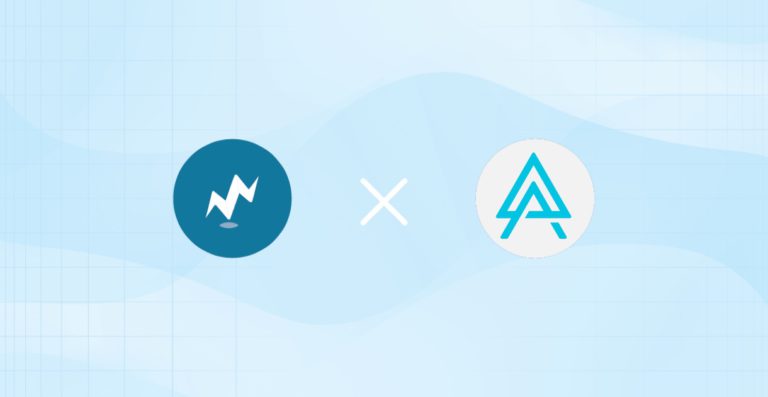Fintech Business Credit Cards: Which Is Best for You?
Fintech is revolutionizing financial services. No longer is the bank the only place you can open an account and get benefits for your business purchases. Fintech business credit cards give you even more benefits than traditional business cards since they are solutions built to solve common problems with banking.
Get huge amounts of cashback, manage expenses efficiently, control expenses on a granular level, integrate with the top accounting software, and much more.
What are Fintech Business Credit Cards?
Fintech business credit cards are corporate cards for business expenses developed by innovative tech-based companies instead of traditional banks. Utilizing the latest technologies, such as artificial intelligence, data analytics, and cloud computing, these cards can offer an improved user experience, additional rewards, and advanced tracking dashboards that typical cards don’t.
Fintech business credit cards are equipped with exclusive features that are customized for the modern business environment, ranging from easy integration with accounting software to quick live updates on expenses and SaaS management.
Many companies also enhance these capabilities by adopting solutions like merchant and developer tools to support more streamlined, secure payment workflows, allowing their financial systems to function more efficiently.
The application process is fast and normally completed entirely over the Internet, which further adds to the convenience and time-saving compared to traditional means. These are often more than just a payment card, offering an all-around financial management instrument with customizable spending limits for different employers, profound spending analytics, and a business-suited reward system.
Businesses seeking to implement these advanced payment solutions often benefit from specialized FinTech consulting services to ensure optimal integration and maximize their financial technology investments.
Fintech vs. Traditional Credit Cards
Here are the main differences you can expect between fintech business cards and traditional credit cards.
1. Technology-Driven Solutions vs. Established Systems
Fintech credit cards are born out of cutting-edge technology. They leverage AI, machine learning, and real-time data analytics to offer a more personalized and efficient experience. A finance software development company builds these capabilities from the ground up, creating custom solutions that traditional banking infrastructure simply cannot match.
To ensure these complex features translate into seamless user experiences, many financial institutions partner with specialized mobile app developer companies that focus on high-performance interfaces and secure, real-time data synchronization.
Based on ScienceSoft’s experience, fintech software development costs typically range from $100,000 to $2,000,000+, depending on the type of product, the complexity of functional and non-functional capabilities, the scope of integrations, and security and compliance requirements.
Traditional credit cards, on the other hand, are products of long-established financial institutions, relying on conventional banking systems. This difference fundamentally impacts user experience. Fintech cards often offer more intuitive, user-friendly digital interfaces and real-time insights into spending.
2. Application and Approval Process
Applying for a fintech credit card is an online, streamlined process, usually resulting in quicker approval times. Traditional credit cards may involve more paperwork and longer processing times.
3. Integration with Business Tools
Fintech cards integrate seamlessly with other business tools, especially accounting software such as QuickBooks. This integration facilitates automatic expense tracking and categorization, making it easy to start integrating this financial tool into your current processes. Traditional cards might not offer this level of integration, requiring more manual effort for expense management.
4. Customization and Flexibility
Fintech credit cards often come with more customizable features like setting specific spending limits for different employees or categories. Another example is custom expiration dates. An essential feature that allows you to sign up for software free trials that require a credit card while ensuring that you don’t get charged at the end of the trial period. This flexibility is a significant advantage for businesses looking to maintain tight control over expenses. Creating business cards traditionally through banks is not as easy or customizable as with Fintech.
5. Fee Structures and Rewards
Fintech companies tend to adopt more transparent and often more competitive fee structures. They may offer unique rewards and incentives tailored to business needs, like cashback on business-related purchases or discounts on business products. Traditional credit cards also have reward programs but can sometimes be less tailored to specific business needs.
Key Benefits of Fintech Business Credit Cards
1. Enhanced Digital Experience: One of the most significant benefits of fintech credit cards is their superior digital user experience. These cards are designed for the digital age, with user-friendly interfaces, easy online management, and real-time notifications. This approach aligns perfectly with businesses that operate in a fast-paced, technology-centric environment.
These digital-first platforms leverage fintech product design principles to deliver intuitive interfaces that simplify complex financial workflows.
Fintech cards give you access to advanced expense-tracking dashboards that give you a complete view of your business.
Many fintech companies leverage custom fintech software development services to create sophisticated expense-management tools that integrate seamlessly with accounting systems.
2. Real-Time Expense Tracking and Management: As mentioned before, fintech credit cards for businesses are great at providing real-time insights into spending through dashboards and other financial tools. They allow businesses to track expenses as they occur, categorize them automatically, and even set budget limits. Some providers also collaborate with eWallet app development companies to deliver integrated payment solutions that enhance convenience and security for users.
Plus, some fintech corporate cards can automatically scan your expenses to identify areas where you are overspending. For example, you can instantly identify duplicate or unused subscriptions in your software stack. Saving you money every month.
3. Integration with Business Software: Fintech cards are more in touch with the tech requirements of modern businesses, which is why you can integrate easily with existing business software, particularly accounting, expense management systems, and logistics software solutions. This integration reduces administrative burden, minimizes the risk of human error, and enhances overall financial reporting accuracy.
4. Customization and Control: Fintech business credit cards offer a level of customization that is typically not available with traditional credit cards. Businesses can set individual spending limits, control where the card can be used, and even adjust permissions and settings as needed. This flexibility is crucial for businesses that need to adapt quickly to changing circumstances, something made possible by the technology built by leading fintech app development companies.
5. Transparent and Competitive Fees: Fintech companies usually are transparent with all fees and show them on their website. Unlike traditional credit cards, which often have hidden fees, fintech cards lay out all the costs upfront. Generally, they also offer more competitive rates, which can be especially beneficial for small to medium-sized businesses looking to minimize costs.
6. Tailored Rewards and Incentives: Fintech corporate credit cards come with rewards programs specifically designed for businesses. These might include cashback, travel perks, or discounts on business services. For companies with frequent travel, integrating travel fraud prevention tools ensures that every trip and transaction remains secure and compliant. These tailored rewards can provide significant savings and advantages for companies.
7. Enhanced Security Features: Leveraging the latest in digital security technology, fintech cards often offer advanced security features. This includes fraud detection algorithms, encryption, cloud posture management and customizable security settings, providing peace of mind for businesses concerned about financial security.
Essential Features of Top Fintech Credit Cards
Below are some of the features you should look for when considering fintech credit cards for your business.
1. Cashback and Rewards
Rewarding spending with cashback and other incentives is a standout feature of top fintech cards. Unlike traditional rewards that may not align with business spending, fintech cards often offer cashback on categories relevant to business needs. But also, these cards give you access to an exclusive software + services marketplace with 800+ business product discounts. You can buy the software you need, like QuickBooks, Xero, Zoho Books, Bench, SAP Concur, and many more while saving and earning cashback.
2. SaaS Management
In an era where software is integral to business operations, top fintech credit cards offer specialized SaaS management features. These include the ability to track and manage subscriptions, ensuring businesses don’t overspend on unused services and can optimize their software expenses efficiently. NachoNacho is the leading product in this category, with advanced features such as automatic duplicate and unused subscription detection, virtual card creation per vendor, one-click card cancellation, and more.
3. Advanced Expense Tracking
Fintech cards provide real-time tracking and categorization of expenses, which is crucial for maintaining a clear picture of financial outflows. This feature simplifies the reconciliation process and aids in more accurate budgeting and forecasting.
4. Easy Multiple Card Creation
Flexibility in issuing multiple cards is a game-changer for businesses. The best fintech credit cards allow you to easily create additional cards for employees, each with customized spending limits and specific usage controls. With NachoNacho, employees can request cards for their needs and the manager will then review and approve or decline in seconds. You can even create one card per software vendor so that you have granular control over spend. This not only streamlines expense distribution but also enhances financial oversight.
5. One-Click Card Cancellation
When you use a single card for all kinds of purchases, you can run into a huge problem if one of the vendors wrongfully utilizes your information. For example, a vendor could try to overcharge you. Or maybe you want to cancel a subscription, but the process is purposefully difficult. In these scenarios, business owners with traditional bank cards often lose money until they can fix the issue. But with NachoNacho’s fintech corporate cards, you can have a card per vendor that you can disable with one click. You don’t have to deal with vendors. Just cancel the associated card.
6. Software Discounts and Perks
Cashback is a common reward for fintech credit cards, but only NachoNacho offers access to discounts of up to 90% on the most popular software tools. You can finally purchase that software you need without spending as much or discover game-changing hidden software gems. NachoNacho’s AI can also suggest the best software for your needs. Then, you can manage those subscriptions from the same place.
Applying for a Fintech Business Credit Card: A Step-by-Step Guide
The application process for fintech virtual cards varies depending on the provider, but it usually involves signing up online, going through verification, and setting up your account. Here’s an overview of the process.
- Get a Demo: Typically, since fintech products are robust and offer a great variety of features, you might need to go through a demo so that you can see all the capabilities of the platform. Otherwise, you might underutilize the product. Demos are usually quick, and you can get a lot of value from them.
- Create an Account: Then, you need to create an account on the platform’s website of your choosing. This process usually involves providing basic information about yourself and your business.
- Complete the Application Form: The application form will ask for detailed information about your business. This can include the business name, contact information, industry type, business structure (like corporation, partnership, or sole proprietorship), and tax identification number (EIN or SSN). You’ll also need to provide information about your business’s operational history, such as years in operation, number of employees, and annual revenue.
- Undergo KYC (Know Your Customer) Process: Fintech companies are required to adhere to regulatory standards, including KYC procedures. They rely on KYC service providers to ensure everything is in order. This step involves verifying the identity of the business and its owners. You may need to undergo a liveness test and submit documents like government-issued IDs, business licenses, and proof of address. All of this is very important and standard to guarantee that users are part of genuine businesses and don’t misuse the platform.
- Approval and Card Issuance: After submitting your application and completing KYC, the fintech company will review your application. This process is typically quicker than traditional credit card applications. Once approved, you’ll have access to your account. Some fintech providers offer virtual cards that can be used immediately, while physical cards may be mailed to your business address.
- Set Up and Integration: After receiving your card, you can set it up for use. This may involve activating the card, setting spending limits, and integrating it with your business accounting or expense management software.
- Fund Your Account: Some fintech credit cards may require you to fund your account, similar to a prepaid card, especially if they do not offer a traditional credit line.
- Start Using the Card: With the card set up and integrated, you can start using it for business or even personal expenses. Fintech credit cards often provide real-time tracking and management of expenses, enhancing your financial oversight.
Try the Most Rewarding Business Credit Card Fintech
Your fintech corporate card should give you access to rewards that can have a huge impact on your business. NachoNacho cards do exactly this. Aside from the essential expense tracking and control features, you get exclusive access to the largest and only SaaS and services marketplace with discounts of up to 90%.
This way, your fintech business card, actually gives you rewards for the products that matter the most for your growth. These discounts include HubSpot, Apollo, ClickUp, Slack, Zoom, Notion, and 700+ more.

Written by Andres Muñoz
If you would like to receive the latest deals added to NachoNacho, make sure you sign up for our newsletter below. We’re adding amazing software discounts you can’t miss!
Sign up for our newsletter







